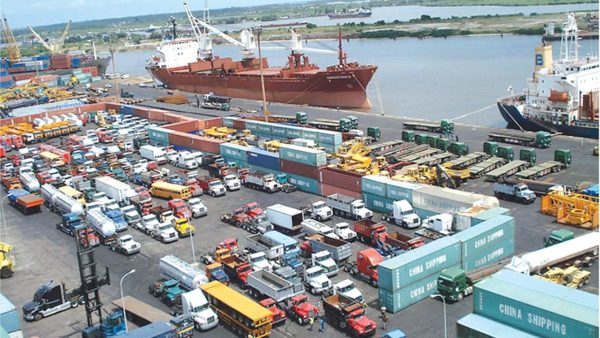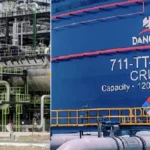The Nigerian Ports Authority (NPA) has adopted multimodal means of transportation encompassing the use of Rail, Road and Inland Water to move export cargoes to cope with the surge into Apapa terminal.
Export of agricultural and solid minerals has increased steadily in the last three years rising by 33 percent in 2023 above the 2022 figure.
Findings by our correspondent revealed that, there are no trapped exports into the terminal in Apapa, rather what was witnessed is an upsurge in the volume of export through the seaport in the last two years.
This is contrary to some newspaper reports alleging trapped containers at the Lagos Port Complex.
NPA had some years back established some designated Export Processing Terminals (EPT) to streamline export processes.
The Nigerian Customs Service had described the EPT as a one-stop shop for export cargo and that it accounts for why the Service had set it as Command.
At the EPTs, officials of all relevant government agencies are domiciled to ensure that exports are checked and are in line with export and import guidelines.
The Managing Director of NPA, Mohammed Bello-Koko, who dispelled newspaper reports alleging trapped containers at Lagos Port Complex and the attendant gloomy picture painted of the prospects of export from Nigeria, stated that the reports are misleading.
Bello-Koko who spoke through the Authority’s Head of Corporate and Strategic Communication, Sarah Ballah, said the Authority would wish to place on record that there are no trapped export containers in the ports.
Ballah said rather what is witnessed is an upsurge in the volume of export through the Ports in the past two years.
She said the upsurge in export is evident in the huge increase of 33 percent export in 2023 over the 2022 figure.
“Due to the surge in numbers, the Authority intensified the use of multi-modalism, by encouraging Rail, Road and Inland Water movement of export cargo in the Apapa terminal.
“To also ensure that exports are ready for shipment in good time, the Authority established export processing terminals at locations proximate to the port to ensure timely arrivals of cargo for Shipment Prioritization of export in the electronic call up system of traffic management by deploying two time belts, ensuring that more export trucks gain access to the port over and above other cargo types. Currently, exports access the port on a 24-hour basis as soon as they are within the Port corridor” she added.
Speaking further, she said the combination of all the factors outlined is responsible for the high influx of exports into the terminals, and that they are awaiting the respective schedules of shipment.
According to her, to ensure that export containers do not miss their scheduled shipment, the Authority opens the gate for such containers to go into the port, 10 days before the arrival of the lifting vessel.
“Due to the upsurge in trade, the inflow creates an artificial accumulation which is cleared within days of containers arriving in the port.
“Some reports also made reference to 616 abandoned containers. We confirm that this report is true as some of the containers had been abandoned by the consignors, for reasons not known to the Authority or the terminal.
“The respective shipping lines whose containers were used to stuff the cargo as well as the Nigerian Customs Service had been contacted to make arrangements for the retrieval of the affected boxes from the port, some of which have spent over 4 years.
“We use this medium to appeal to Shipping Lines to increase the frequency of calls to cope with the rising influx of export cargo into the Ports,” she said.
Meanwhile, data obtained by this Correspondent showed that between April 28, 2024 and May 5, 2024, a total of 2,294 boxes of export were shipped out of the country while 1,377 fresh boxes came in.
Managing Director of NPA, Bello-Koko, had on different occasions, appealed to the Customs management to scrap all the export desks at the various commands of the Service.
The NPA MD had expressed dissatisfaction at a situation where Customs officials at the export processing terminals report to the export desks at the seaports.
Gratifyingly, this was part of the issues discussed at the meeting between the NPA Managing Director and Customs Comptroller-General, Wale Adeniyi, recently. The meeting which took place at Apapa Customs Command was aimed at streamlining export processes at the ports.
The two top government executives talked about eliminating the duplication of Customs export desks that undertake multiple cargo checks at the NPA-licensed Export Processing Terminals (EPT). They also agreed to put in place inter-agency modalities to ensure 24-hour port operations, and at the same time, agreed to synergise efforts and advocacy to get other agencies to fall in line.

 Join Daily Trust WhatsApp Community For Quick Access To News and Happenings Around You.
Join Daily Trust WhatsApp Community For Quick Access To News and Happenings Around You.


